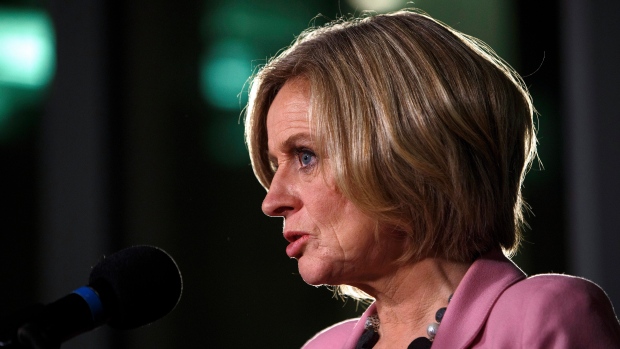Jan 30, 2019
Alberta eases crude cuts as prices surge, producers suffer
, Bloomberg News

Alberta is easing mandatory oil curtailments after prices for heavy crude from the oil-rich Canadian province surged while producers were getting exasperated.
The new target for output next month will be 3.63 million barrels a day, up from 3.56 million in January, the provincial government said in a statement Wednesday. Inventories have dropped by 5 million barrels, easing a glut that depressed prices. The discount at which heavy Canadian crude trades to the U.S. benchmark widened after the announcement to $9.50 a barrel from $8.60 earlier, according to traders.
Alberta began curtailing production this month as a last-resort measure to arrest the collapse in Western Canadian Select crude prices as the oil-sands industry grappled with its worst-ever pipeline bottleneck. But even supporters of the controversial OPEC-style measure became critical.
Canadian Natural Resources Ltd., which supported the production cuts when they were announced in early December, told service companies it may have to shut the ECHO crude pipeline because new rules for determining quotas would leave too little oil to operate the line, according to two people who saw the letter. ECHO carries heavy crude from Western Alberta to the Hardisty storage hub.
“The idea of finding a rational way to get out of curtailment would be a good idea,” Gary Mar, chief executive officer of the Petroleum Services Association of Canada, said at a press conference Wednesday. “This is normally the busiest time of the year in this business and people are being laid off now.”
Integrated producers like Exxon Mobil Corp.’s Imperial Oil Ltd., which can process crude locally in their refineries, argued the cuts amounted to government overreach and would shake investor confidence in the province.
The easing announced Wednesday may give local heavy crude prices a boost relative to Maya crude from Mexico, Greg Pardy, a Toronto-based analyst for RBC Dominion Securities, said in a note.
“The Alberta government’s move may serve to modestly widen WCS-Maya spreads, but we see this as a good thing as it should encourage producers to sign-up for crude by rail contracts,” Pardy said.
Western Canadian Select crude that traded at a $50 discount to U.S. benchmark West Texas Intermediate in October narrowed the gap to less than $9 before Wednesday’s announcement. That level wouldn’t cover the cost of sending oil by rail to the U.S. Gulf Coast. The Alberta cuts tightened supply from Canada at the same time that OPEC and its allies reduced exports.




